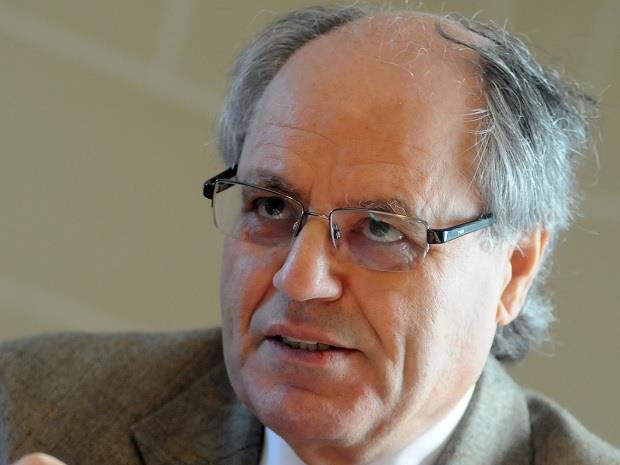Traffic congestion is one of the main stumbling blocks to economic growth in Malta, Finance Minister Edward Scicluna said this morning.
Prof. Scicluna was speaking at a business breakfast which focused on the Pre-Budget Document 2015, and brought up traffic congestion when asked, by a GRTU representative, on the recent increase in the licence fees for commercial vehicles.
Prof. Scicluna acknowledged that these were among the highest in Europe, but insisted that the main issue was traffic congestion.
He said that critics often argued that public transport subsidies should be cut, along with removing such taxes on cars, but argued that the opposite direction was appropriate.
The minister also noted that investment on roads provided the highest return over the years, before stating that one needed to "think out of the box" to come up with solutions to reduce traffic congestion, "which is clogging activity and causing us a great economic expense."
A number of those present pointed out that the environment was given short shrift in the document - the issue actually received no mention whatsoever - but the minister insisted that this omission was an error. At one point, he observed that short-termism was very dangerous, on the environment as well as on other issues such as pensions.
On pensions, he observed that the picture was not as bad as it appeared, noting that one cannot rely on a model which assumes low economic growth, a non-growing population and a labour participation rate that does not go up.
He said that the government is seeking to look into the matter in a much more scientific manner, and was seeking the World Bank's assistance to do so.

'An offer which will be very difficult to refuse'
The title of the pre-budget document is "Creating opportunities, not dependencies," and Prof. Scicluna insisted that "the phenomenon of people who seem not to want to work" should be persistently attacked.
He argued that people's decision to stay on benefits was rational - people did so because it did not benefit them to go to work - and said that the system must be changed to address this.
The minister said that there was the need to develop bold schemes, describing the introduction of free childcare for working parents as one such measure. He noted that for the first couple of years, the measure would simply provide a windfall to those who already paid to use childcare centres, but stressed that in the end it would pay off through increased tax revenue and economic growth brought about by an increasing labour participation rate.
At one point, a representative of the Gozo Business Chamber suggested that the budget should reward those who chose to work and punish those who did not avail themselves of such opportunities. But the minister suggested an alternative approach, focusing on free choice.
"To those who opt to rely on benefits, we must make an offer which will be very difficult to refuse," he said, adding that the schemes that the government is planning to come up with will be focusing on this.
Malta Employers' Association director-general Joe Farrugia's comment that employees' work ethic was deteriorating across the board as the result of a "mentality of entitlement" earned agreement from the minister, who said that this was also his impression, particularly in the public sector.
He noted that many measures allowing for flexibility, such as telework and flexi-work, were "excellent" if used properly, but noted that the former was being abused where supervision was insufficient.